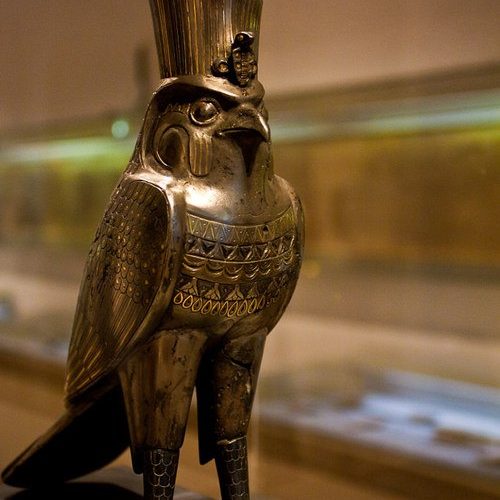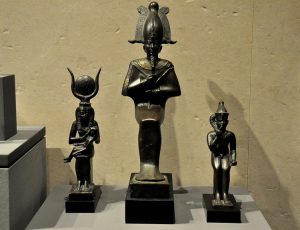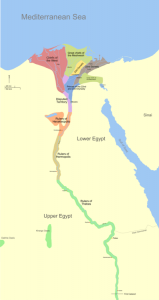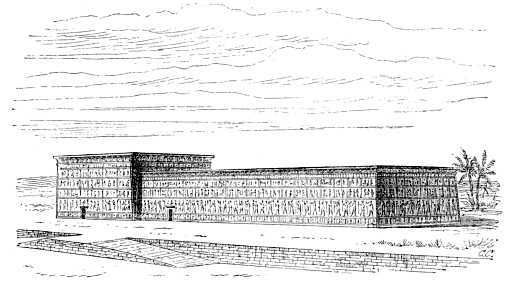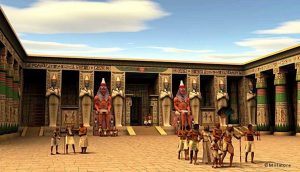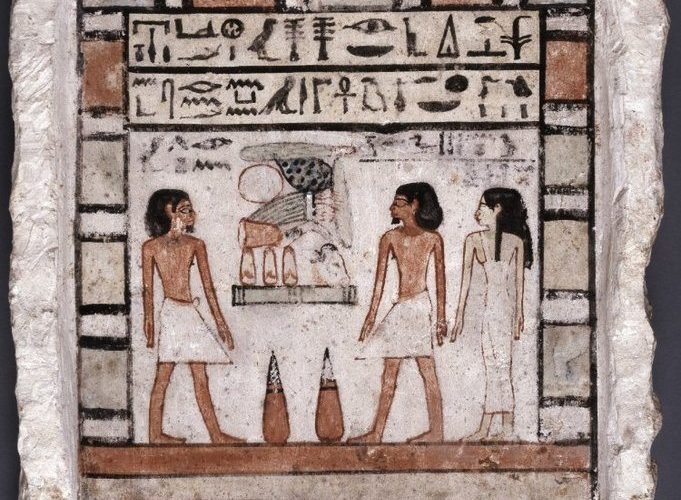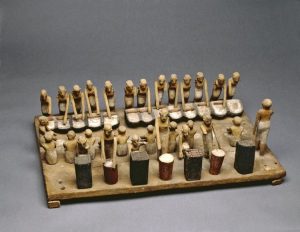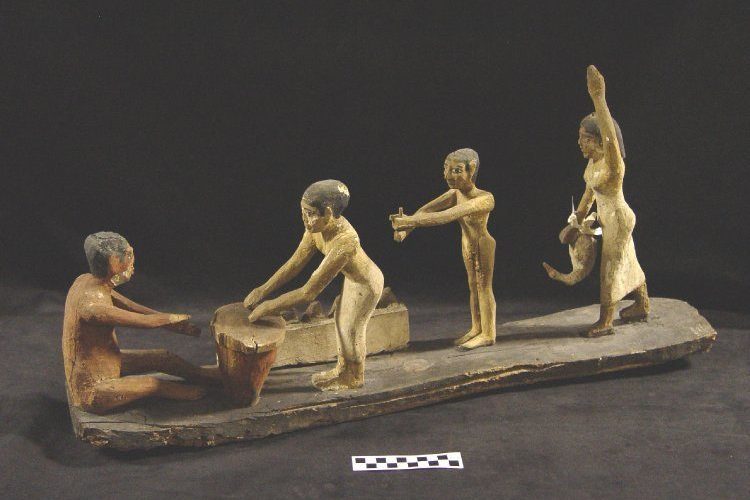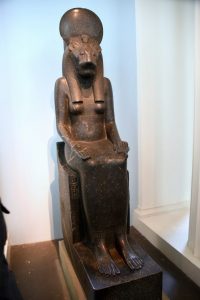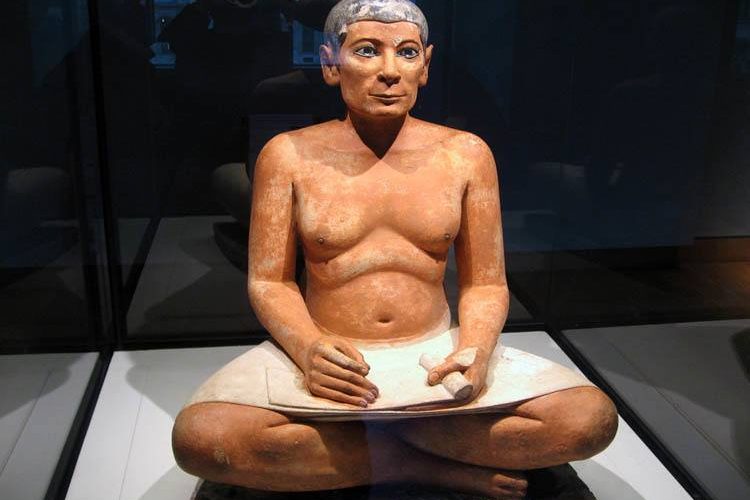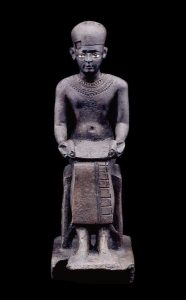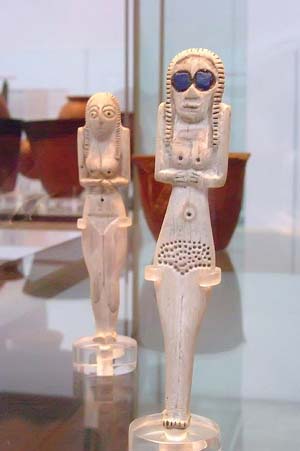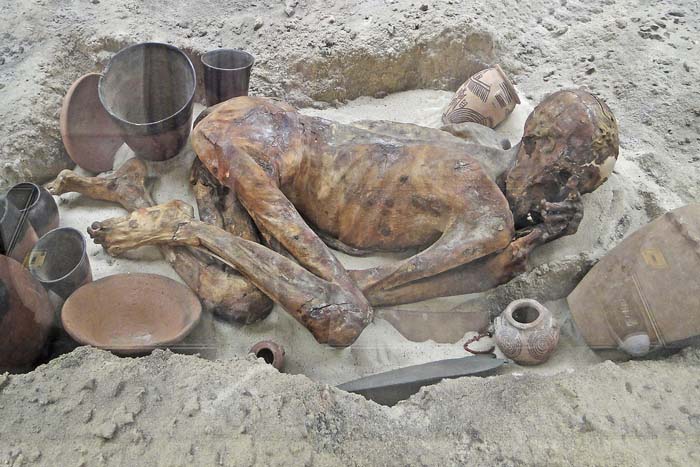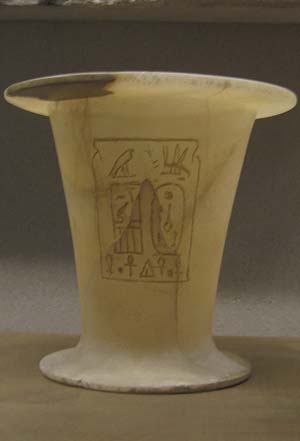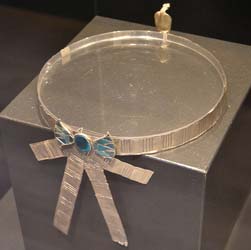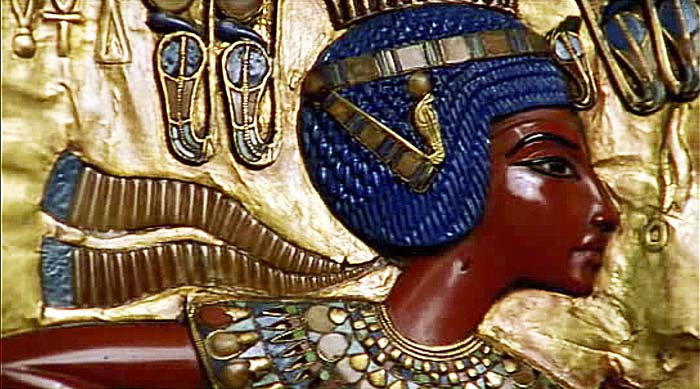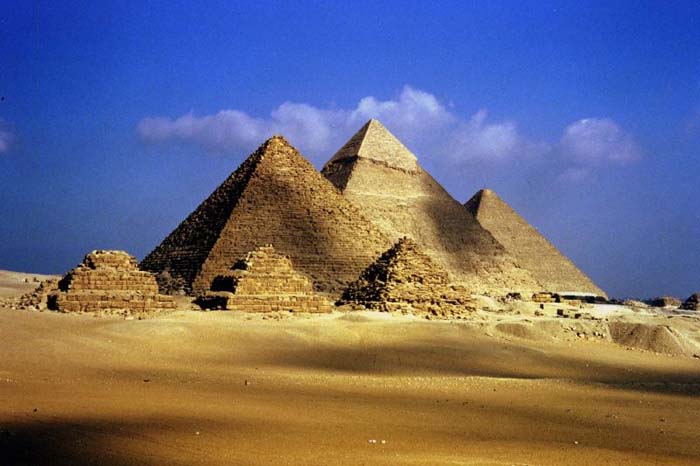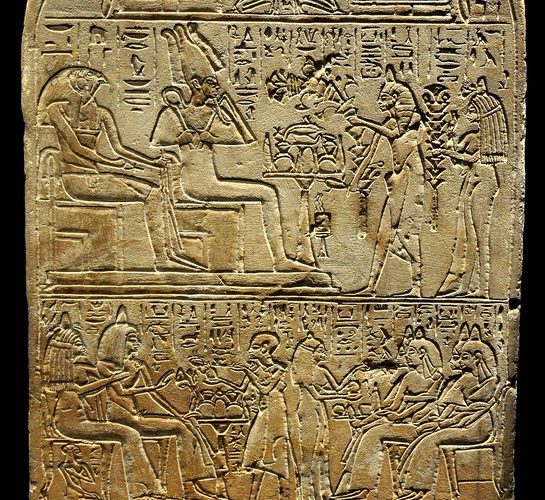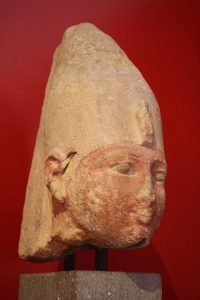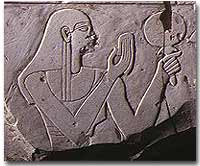Horus
Horus is the name of a sky god in ancient Egyptian mythology which designates primarily two deities: Horus the Elder (or Horus the Great), the last born of the first five original gods, and Horus the Younger, the son of Osiris and Isis. According to the historian Jimmy Dunn, “Horus is the most important of […]
Third Intermediate Period of Egypt
The Third Intermediate Period (c. 1069-525 BCE) is the era following the New Kingdom of Egypt (c. 1570-c.1069 BCE) and preceding the Late Period (c.525-332 BCE). Egyptian history was divided into eras of ‘kingdoms’ and ‘intermediate periods’ by Egyptologists of the late 19th century CE to clarify the study of the country’s history, but these designations were not used by the […]
The Clergy, Temples & Scripture
Although the Greek historian Herodotus claims that only men could be priests in ancient Egypt, the Egyptian record argues otherwise. Women could be priests of the cult of their goddess from the Old Kingdom onward and were accorded the same respect as their male counterparts. Usually a member of the clergy had to be of the same sex as the deity […]
Brewing & Banquets
The best-known examples of these models come from the tomb of Meketre of the early Middle Kingdom. These are small dioramas which detail the brewing process at that time. The models supplement letters, receipts, and other written works in depicting how beer was brewed and by whom. Strudwick notes that “although beer was produced daily in […]
Beer in Ancient Egypt
Considering the value the ancient Egyptians placed on enjoying life, it is no surprise that they are known as the first civilization to perfect the art of brewing beer. The Egyptians were so well known as brewers, in fact, that their fame eclipsed the actual inventors of the process, the Sumerians, even in ancient times. The Greeks, who were […]
Ancient Egyptian Government
The government of ancient Egypt was a theocratic monarchy as the king ruled by a mandate from the gods, initially was seen as an intermediary between human beings and the divine, and was supposed to represent the gods’ will through the laws passed and policies approved. A central government in Egypt is evident by c. 3150 BCE […]
The History of Egypt
Ancient Egypt enjoyed a long and varied history. Knowledge of Egyptian chronology is necessary to understand the country’s history. Scholars divide the history of Egypt into periods and dynasties but these do not always reflect changes in royal lines. Sometimes, the divisions reflect changes in architecture or in the pharaohs’ capital. During the intermediate periods, […]
FIRST INTERMEDIATE PERIOD & MIDDLE KINGDOM
The kings still ruled from their capital of Memphis at the beginning of the First Intermediate Period, but they had very little actual power. The nomarchs administered their own regions, collected their own taxes, built their own temples and monuments in their honor, and commissioned their own tombs. The early kings of the First Intermediate Period (7th-10th dynasties) were […]
LATE PERIOD of Ancient Egypt & PTOLEMAIC DYNASTY
Egypt was again divided as it now entered the Third Intermediate Period (1069-525 BCE). The government at Thebes claimed supremacy while recognizing the legitimacy of the rulers at Per Ramesses and intermarrying with them. The division of the government weakened Egypt which began to degenerate into civil wars during the Late Period (c. 664-332 BCE). At this […]
Egyptian Social Structure
Egyptian society was structured like a pyramid. At the top were the gods, such as Ra, Osiris, and Isis. Egyptians believed that the gods controlled the universe. Therefore, it was important to keep them happy. They could make the Nile overflow, cause famine, or even bring death. In the social pyramid of ancient Egypt the […]


